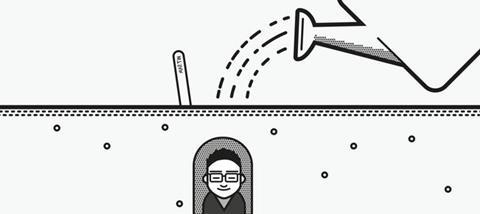
I first met Julia in an international literature class at university. She was the lecturer, I was the barely-awake man-child in the back row, far out of my depth studying the seminal works of Chinua Achebe and Ng?g? wa Thiong’o. For a few weeks I avoided her gaze and blended in to the back of the class. Then one day, she asked me to stay behind after a lecture. I assumed I’d been found out; that my essay on Athol Fugard’s Township plays had revealed me as an intellectual gnat; what happened instead was genuinely lifechanging.
Julia had observed my contribution to a role-play exercise, and read a pretty awful poem I’d written as part of an assignment. She was intrigued, she said, and wanted to get me to stretch and explore my creative writing capabilities. I told her I didn’t have a huge amount of free time, which was of course an outright lie, but instead of pushing me on that, she did something remarkable. For the rest of that first year, while others wrote essays, she said she wanted me to write creative responses to the books we read: poems, short stories, pastiches. Absolutely no one else could know about it though; she was bending the rules enough to land both of us in trouble. I agreed.
As Christian youth workers we have a responsibility to look out for the one, as well as the many
As a child I always wanted to be a writer, but that dream was crushed by an unforgiving secondary school which only seemed to value certain kinds of academic achievement (and rugby). Julia’s suggestion soon reignited the old dream. Thanks to her unorthodox intervention, I started back on the path to being a writer, and 17 years later, I remain on it.
What Julia demonstrated was an almost prophetic level of insight. She looked through that class and saw an individual: she was able to perceive a spark of potential within that person. More than that, she was prepared to innovate in order to unlock that potential, to discard convention in the pursuit of growth. For me that’s more than just an old self-indulgent story, it’s a challenge to and a blueprint for relational youth ministry.
While our pre-eminent model might be the youth ‘group’, those groups consist of a series of individuals. Of course we aim to foster a sense of community and relationship between those individuals, but as Christian youth workers we have a responsibility to look out for the one, as well as the many. Like the shepherd in the parable who goes looking for the one lost sheep and leaves the 99 behind, we don’t see our groups as a faceless mob but a series of unique young people, miraculously created and installed with terrifying levels of potential. We might see that potential on the surface, or we might not. God meanwhile, alongside whom we minister, sees everything: every hope, dream, gift and possibility contained in each of those teenagers. That’s why it’s vital we seek his guidance, wisdom and discernment as we talk and spend time with young people, for that prophetic insight that enables us to see what sometimes they can’t: the potential for growth, a talent worth developing, or a gift that could be exercised.
So far, so orthodox, but what really made Julia’s intervention in my life so powerful was her decision to tear up the rulebook in pursuit of the greater good. So what does that mean for us in youth ministry, and particularly for our one-to-one interactions with young people? For me it means taking risks of (appropriate) youth empowerment, not being afraid to challenge young people to attempt hard things and expecting them to live up to that challenge. It means creating a safe context where gifts and talents can be explored. That’s what Julia did for me, I can only imagine what my youth work might look like if I was able to do the same for others.
I mentioned that Julia’s death was tragic. Her mind clouded by illness, she was unable to see her extraordinary worth and impact, and chose to take her own life. At her funeral, I heard stories from dozens of people who’d had similarly life-changing encounters. Her life was marked by a rare commitment to unlocking the full potential of others, while despite her own brilliance, she stayed in the background. What a vision to aspire to.




























